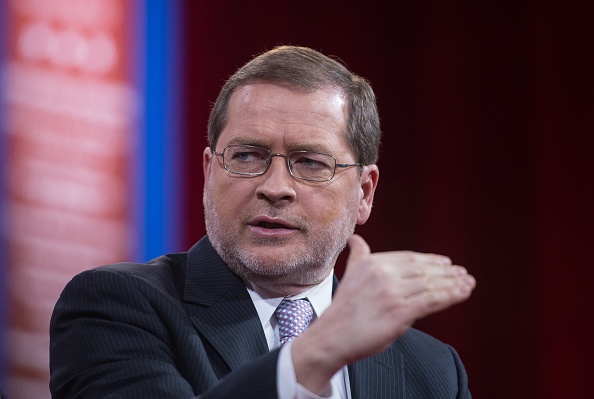
A bipartisan coalition leading a landmark push for criminal-justice reform has set its agenda, but many of the details remain to be filled in.
The Coalition for Public Safety, which includes some of the most influential policy groups on the right and left, announced a new campaign Monday to reform sentencing laws and reintegrate offenders back into society.
“We see these ideas as the baseline for how we can reduce the existing prison population,” said Christine Leonard, the group’s executive director, “as well as support individuals coming home.”
The announcement was a sign of how far the movement has come, but also a sign of how much work remains to be done to begin enacting its goals.
The group includes liberal outfits like the Center for American Progress and the American Civil Liberties Union, as well as conservative organizations like Americans for Tax Reform and Right on Crime. The multi-million dollar initiative is underwritten by donors as disparate as Koch Industries and the Ford Foundation. For these fractious factions, the ability to coalesce around a set of policy objectives is no small task. But a casualty of the search for consensus has been specifics.
Read More: Will Congress Reform the Criminal Justice System?
In a conference call Monday with reporters, the group said it would launch a national education campaign to mobilize public support for some of its priorities with the broadest support, including reducing the length of mandatory minimum sentences for non-violent offenders, curtailing sentences of life without parole, promoting alternatives to incarceration and removing obstacles that impede transitions back to the workforce for the one-in-three Americans with a criminal record.
But after months of meetings, the recommendations were modest in scope and light on detail. “These reforms are only the beginning of what lawmakers can do,” said Jason Pye, director of messaging and justice reform at the Tea Party-aligned group FreedomWorks.
Nor is it clear that the recommendations will do much to sway them. Despite growing consensus around the need to reform a system that critics call bloated and broken, there has been little little legislative movement. A raft of bipartisan proposals have languished in a divided Congress.
“Some of the other issues are blocked by partisan stalemate. This is one where we actually could move things forward,” said Grover Norquist, the president of Americans for Tax Reform. “We’re just going to have to defeat the forces of the status quo.”
Organizers acknowledged that threading bills through Congress remains a challenge. The Coalition hopes to make progress by the August congressional recess, when the presidential race will kick into a higher gear and lawmaking will slow even further.
“We’re in a long term marathon here, in terms of where we need to shift the country after two decades of polices that took us in the wrong direction,” Leonard told TIME in an interview. “There is a strong sense of urgency among these partnering organizations to see that we’re making an impact, both in the daily conversations that are happening around dinner tables but also among policy makers.”
But in Washington the forces of inertia increase in accordance with the number of actors. There are are seven organizations involved with the coalition, and it took months of meetings to lay out a general blueprint. There are 535 lawmakers in Congress. Even the most powerful interest groups know that translating public support into tangible reform remains an uphill battle.
“This is not necessarily a road map for a legislative proposal, but it does demonstrate the pathbreaking level of agreement and consensus around a set of issues,” Leonard says. “What we’re anxious about is, why isn’t there more happening?”
More Must-Reads From TIME
- The 100 Most Influential People of 2024
- The Revolution of Yulia Navalnaya
- 6 Compliments That Land Every Time
- What's the Deal With the Bitcoin Halving?
- If You're Dating Right Now , You're Brave: Column
- The AI That Could Heal a Divided Internet
- Fallout Is a Brilliant Model for the Future of Video Game Adaptations
- Want Weekly Recs on What to Watch, Read, and More? Sign Up for Worth Your Time
Write to Alex Altman at alex_altman@timemagazine.com